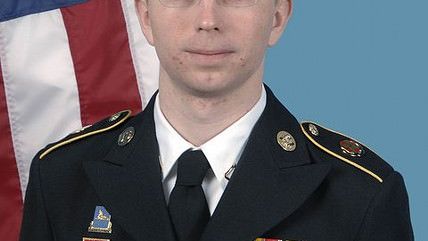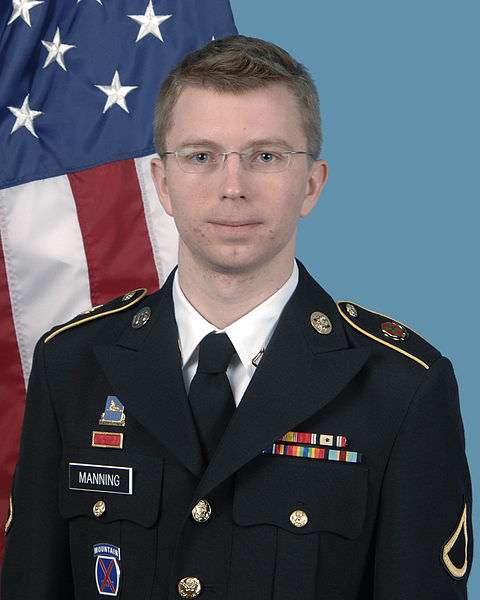Prosecutors Near the End of Their Case Against Bradley Manning


FORT MEADE, Md. - After parking and having the car I was using sniffed by a dog I and fewer than twenty other journalists drove with an escort to a small hall near the courtroom where Pfc. Bradley Manning's trial was being live-streamed. The auditorium where journalists were assembled was mostly empty by the time all of us had taken our seats and were being briefed.
The government continued its case against Manning, who is accused of leaking classified information to the website Wikileaks. Manning is charged with violations of Articles 92, 104, and 134 of the Uniform Code of Military Justice. Manning has admitted to providing military and diplomatic documents to Wikileaks. If found guilty of violating Article 104 (aiding the enemy) Manning could spend the rest of his life in prison. If Manning is convicted of aiding the enemy it will be the first time that someone has been convicted of aiding the enemy for leaking to the press since the case of Pvt. Henry Vanderwater, a Union soldier who was found guilty of aiding the enemy during the Civil War after sending a command roster to a newspaper in Alexandria, Va. Vanderwater was sentenced to three months hard labor. As the Associated Press has reported, the prosecution has cited Vanderwater's case at the Manning trial.
The prosecution is hoping to show that Manning's revelations aided Al Qaeda, Al Qaeda in the Arabian Peninsula, and a "classified enemy," a term that three military law professors said they had never heard of being used in a case. As Courthouse News reported, a military spokeswoman clarified the use of the term, saying that who the enemy is is not classified, but the method used by the U.S. government to establish that classified information has been used by the unnamed enemy is classified. Today, the prosecution presented expected testimony from Youssef H. Aboul-Enein, Adjunct Military Professor and Chair of Islamic Studies at the National Defense University. Aboul-Enein's testimony outlined the history of Al Qaeda and its use of the Internet, as well as its decentralized structure. The government also presented to the court a stipulation of fact (a set of facts agreed upon by prosecution and defense) relating to a propaganda video featuring Adam Gadahn, an American member of Al Qaeda, in which data sent by Manning to Wikileaks is mentioned. The Gadhan stipulation also included information relating to a winter 2010 issue of Inspire, a magazine published by Al Qaeda in the Arabian Peninsula, in which readers were told that information helpful to the Mujahideen found in Wikileaks documents is worth archiving and sharing.
After a lunch recess Maj. Ashden Fein, representing the government, sought to qualify Daniel Lewis from the Defense Intelligence Agency as a counterterrorism expert before going into a closed session. Mr. Lewis was cross examined by Maj. Thomas Hurley, a member of Manning's defense team, who pointed out that Mr. Lewis does not consider himself an expert in the monetary value of classified information. Mr. Lewis is the last witness the prosecution plans to call.
Since being arrested Manning has spent some time being kept in conditions that many believe constitute torture, having been given Prevention of Injury (POI) status during his detention at the Marine Corps Brig, Quantico, Virginia, which meant he was effectively in solitary confinement and had to endure sleep deprivation as well as strip searches. After his detention in Quantico, Manning enjoyed better conditions once he was moved to the Midwest Joint Regional Correctional Facility at Fort Leavenworth, Kansas in April 2011. Manning has been held in military custody in the U.S. since the summer of 2010. His trial started early last month.
Read more from Reason.com on Bradley Manning trial here.
Shortly before Manning's trial began Reason TV covered a pro-Manning demonstration at Fort Meade, Md. Watch the video below:


Show Comments (45)